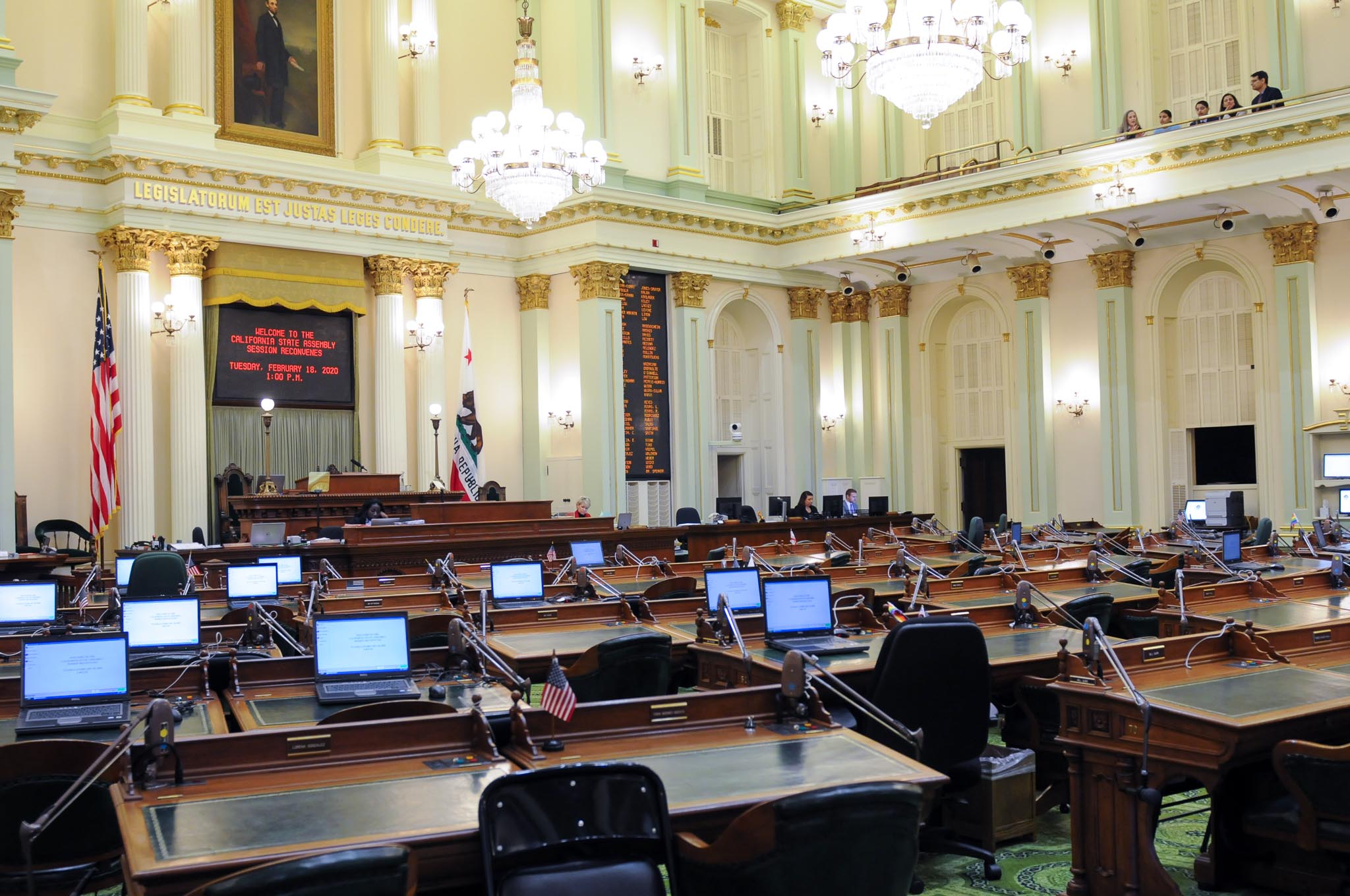
California State Capitol. (Photo: Kevin Sanders for California Globe)
Appropriations Limit Disclaimer in California Bills
Why is this disclaimer language required in a bill?
By Chris Micheli, March 29, 2022 6:46 am
A reader of California legislation may come across a section at the end of a bill that provides a disclaimer related to Article XIII B, such as the following example:
This act provides for appropriations relating to the state of emergency declared by the Governor on March 4, 2020, relating to the COVID-19 pandemic, and pursuant to paragraph (2) of subdivision (c) of Section 3 of Article XIII B of the California Constitution are not subject to the annual appropriations limit set by Section 1 of Article XIII B of the California Constitution when passed by a two-thirds vote of the Legislature.
Why is this disclaimer language required in a bill? The basis for this bill language is from Article XIII B of the state Constitution, which deals with the “Government Spending Limitation,” often referred to as the “Gann Limit” or the “State Appropriations Limit.” It limits the amount of government spending with an annual increase based upon population and cost of living changes.
Section 1 provides:
The total annual appropriations subject to limitation of the State and of each local government shall not exceed the appropriations limit of the entity of government for the prior year adjusted for the change in the cost of living and the change in population, except as otherwise provided in this article.
In addition, another provision specifies how the annual appropriations limit is adjusted. Section 3 provides:
The appropriations limit for any fiscal year pursuant to Sec. 1 shall be adjusted as follows:
(a) In the event that the financial responsibility of providing services is transferred, in whole or in part, whether by annexation, incorporation or otherwise, from one entity of government to another, then for the year in which such transfer becomes effective the appropriations limit of the transferee entity shall be increased by such reasonable amount as the said entities shall mutually agree and the appropriations limit of the transferor entity shall be decreased by the same amount.
(b) In the event that the financial responsibility of providing services is transferred, in whole or in part, from an entity of government to a private entity, or the financial source for the provision of services is transferred, in whole or in part, from other revenues of an entity of government, to regulatory licenses, user charges or user fees, then for the year of such transfer the appropriations limit of such entity of government shall be decreased accordingly.
(c) (1) In the event an emergency is declared by the legislative body of an entity of government, the appropriations limit of the affected entity of government may be exceeded provided that the appropriations limits in the following three years are reduced accordingly to prevent an aggregate increase in appropriations resulting from the emergency.
(2) In the event an emergency is declared by the Governor, appropriations approved by a two-thirds vote of the legislative body of an affected entity of government to an emergency account for expenditures relating to that emergency shall not constitute appropriations subject to limitation. As used in this paragraph, “emergency” means the existence, as declared by the Governor, of conditions of disaster or of extreme peril to the safety of persons and property within the State, or parts thereof, caused by such conditions as attack or probable or imminent attack by an enemy of the United States, fire, flood, drought, storm, civil disorder, earthquake, or volcanic eruption.
Again, Section 1 of Article XIII B provides the spending limit on state and local governments. Section 3(c)(2) allows the Legislature by a 2/3 vote to appropriate (or spend money) for a gubernatorially-declared emergency and those funds are not subject to the spending limit in Section 1.
As a result, the language found at the end of a bill specifies that this particular appropriation will not be subject the Gann Limit in Article XIII B.
- This Is an Interesting Limit on Rulemaking Power - February 23, 2026
- Miscellaneous Civil Action Proceedings - February 23, 2026
- Probate Code Could Be a Basis for Statutory Interpretation Principles - February 22, 2026




Another reason to END THE STATE OF EMERGENCY! This is outrageous.
Enough already with this bombardment of absurdities coming out of Sacramento